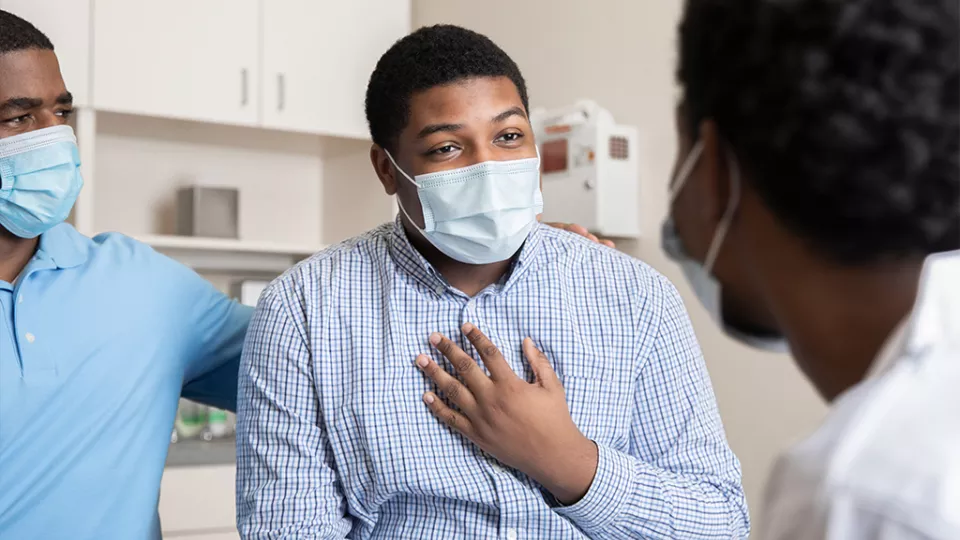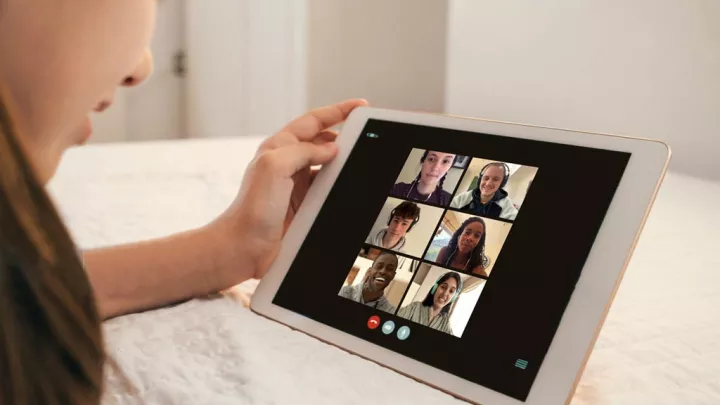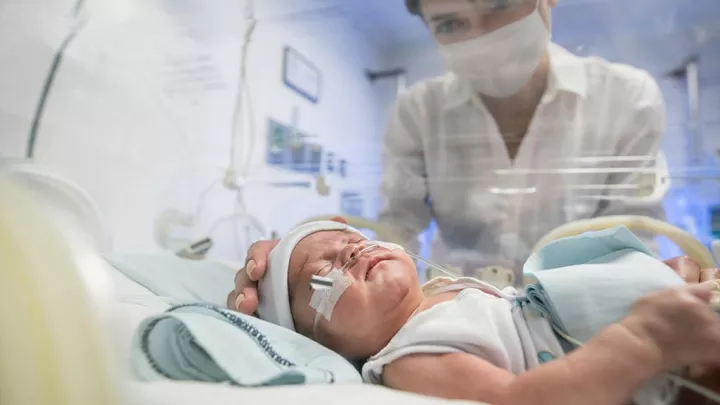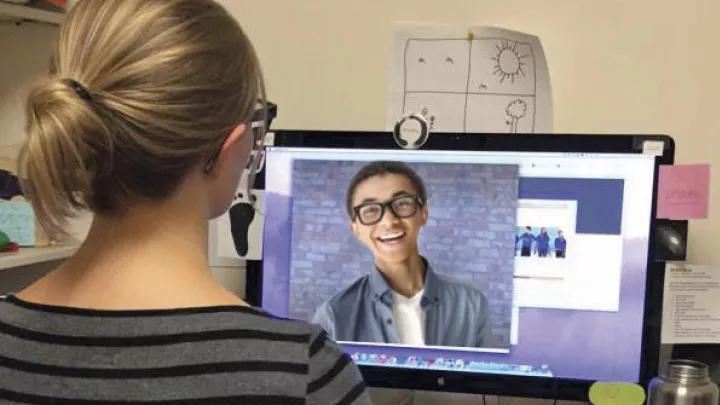
For Young Adults With Diabetes, a Dose of Empathy Is as Important as Insulin
How do you help young adults with their diabetes? Stop making them talk about their diabetes.
Of course, it’s more nuanced than that, but Jennifer Raymond, MD, Chief of the Division of Endocrinology, Diabetes and Metabolism, has found that clinicians can help adolescents and young adults vastly improve their health by letting the patients lead the conversation, especially when it’s not about their diabetes. The model also impacts clinicians, who say that patient-centered care has alleviated stress and burnout. The Leona M. and Harry B. Helmsley Charitable Trust has awarded Children’s Hospital Los Angeles $1.9 million to support the expansion of Dr. Raymond’s unique model of patient-centered care across the United States in order to improve outcomes for young people living with Type 1 diabetes.
Young adults have the most difficulty making the American Diabetes Association’s recommended amount of provider visits each year. It’s understandable—they’re in a busy and tumultuous stage of life, navigating school, jobs, and social and extracurricular activities.
But it’s more than that. Managing a chronic disease like diabetes can feel all-encompassing to young adults. It can leave a patient feeling defeated and powerless to be constantly told that they are not doing enough when it comes to their numbers, behaviors and health in general. Dr. Raymond tested the idea that the best way to reach patients is to empower them to make their own decisions. This starts with letting them decide how they want their appointments to go, as part of her own take on patient-centered care.
Long before virtual meetings were a regular part of daily life, Dr. Raymond began investigating the use of telehealth appointments for adolescents and young adults with diabetes. She and her colleagues have pioneered new and innovative ways to better serve patients in this age group. Elizabeth Pyatak, PhD, an occupational therapist and certified diabetes care and education specialist with a background in patient-centered intervention research, and Jesús Díaz, OTD, an occupational therapist with expertise in motivational interviewing, are frequent research collaborators from the USC Chan Division of Occupational Science and Occupational Therapy. As experts in patient-centered care, Dr. Pyatak and Dr. Díaz will be helping Dr. Raymond to roll out a patient-centered toolkit nationwide.
“We give them a list of discussion topics,” says Dr. Raymond. “They can decide which issues are important to them. And if they don’t want to discuss their A1C or glucose levels, we don’t force them to.” A patient might want to talk about how school is going for them, or how to discuss their diabetes with their employers or professors. “These are big parts of their everyday experiences. The rest of their lives impacts their diabetes much more than insulin dosing.”
Patient-centered care is all about respect and empathy. It acknowledges that diabetes care is a collaborative effort made through a partnership between patient and provider. Adolescents and young adults drive the conversation with their providers instead of being told what to do. It’s a two-way conversation instead of one-way. Finally, patient-centered care means acknowledging that a patient’s life is composed of so much more than their diabetes.
“I just try to come to appointments with a lot of respect for my patients,” says Dr. Raymond. “I’ll usually have some topics in mind, but I allow them to lead. I want my language and demeanor to say: ‘I’m just here to help you with your goals for your health in a nonjudgmental way.’”
Perhaps not surprisingly, adolescents and young adults respond well to this approach. They feel heard and supported, and it shows in their numbers. “I had one patient from the study who was really having a difficult time with some issues at school,” she says. “Together, we discussed a plan and I asked him how I could support him in this plan. He recently visited and his A1C levels had significantly improved. We didn’t even speak about his A1C.”
If you’re thinking that a change in appointment style can’t be entirely responsible for numbers shifting in the right direction, you’d be right. But consider this: when patients are treated like they can be entrusted with big decisions about their own care—their own life—it can empower them to care for their whole self—their mental health, stresses and goals.
Outcomes like these alone speak to the efficacy of patient-centered care, but this model produces another important result. Clinicians in Dr. Raymond’s studies report feeling lower levels of burnout. She says this may be because they’re gaining a partnership with their patients instead of feeling like they are powerless to help them. “As clinicians who see patients for so little of their actual lives, we need to acknowledge we can’t be totally responsible for their health and well-being,” says Dr. Raymond. “If we instead engage them in their own care and act as facilitators, collaborators and supporters, we actually have more power to help them.”
Now, the support of the Helmsley Charitable Trust will enable Dr. Raymond to not only continue these studies, but to launch them on a national level. “We’re going to partner with providers in several states and really work with them on the process of moving toward patient-centered care.”
This requires empathy for the providers, too. She explains that it isn’t always an easy transition for clinicians to make. After years of providing medical care in a certain way, doctors, nurses and other team members can feel vulnerable upon being told that particular topics may be off-limits. “We start small,” says Dr. Raymond. “We change one thing at a time. We’ll say ‘OK, the goal for this week is just to ask patients what they want to talk about.’”
In clinic, few studies can feel like a win-win, but Dr. Raymond says that these studies are shaping up to be just that. Her preliminary data show a marked improvement in patients and clinicians, although she explains that this isn’t the best part.
“This might sound strange,” she says, “but I'm not totally focused on the data. It’s great that we can publish these findings. But I’ve seen patients turn their own lives around. I see doctors feeling like they’re making a real difference again. That’s what I care about most.”
And the word care puts it mildly. Dr. Raymond’s passion and love pour through her work, bearing themselves in her positive outcomes and the relationships she builds with her patients.
“We’re clinicians, yes,” she says, “but what these adolescents and young adults really need is not another person telling them what to do and how to do it. They often just need someone in their corner—someone who’s going to show up for them.”
About Children’s Hospital Los Angeles
Founded in 1901, Children’s Hospital Los Angeles is the highest-ranked children’s hospital in California and fifth in the nation on the prestigious U.S. News & World Report Honor Roll of Best Children’s Hospitals. U.S. News ranks Children’s Hospital Los Angeles in all 10 specialty categories. Clinical care at the hospital is led by physicians who are faculty members of the Keck School of Medicine of USC through an affiliation dating from 1932. The hospital also operates
the largest pediatric residency training program at a freestanding children’s hospital in the Western United States. The Saban Research Institute of Children’s Hospital Los Angeles is home to all basic, translational, clinical and community research conducted at the hospital, allowing proven discoveries to quickly reach patients. Our mission: to create hope and build healthier futures. To learn more, follow us on Facebook, Instagram, LinkedIn, YouTube and Twitter, and visit our blog at CHLA.org/blog.



